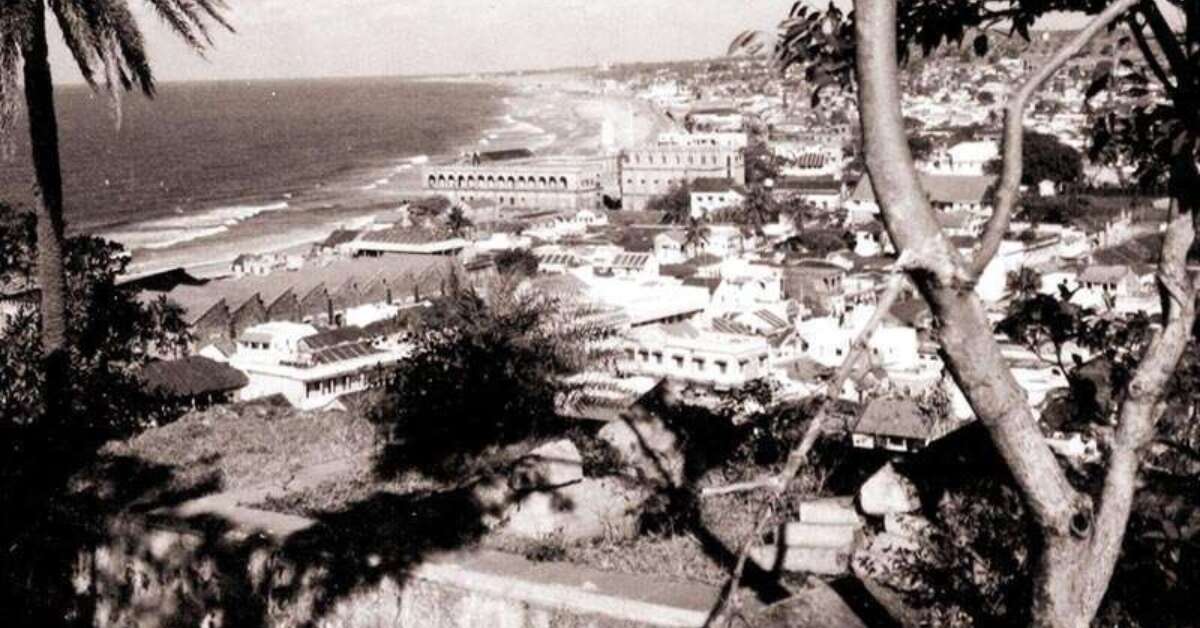Growing up in India, most of us are no strangers to superstitions and omens. Warnings like “don’t step out after a sneeze” or “a black cat crossing your path is bad luck,” may be part of everyday life for some of us till date! Apart from those, however, some curious and deeply localized superstitions once existed in Visakhapatnam (then called Vizagapatam), that are now more folklore than fact.
Thanks to a remarkable early 20th-century record, “Omens and Superstitions of Southern India (1912),” by Edgar Thurston, we get a peek into the bizarre, intriguing, and sometimes eerie beliefs that once echoed through the hills and coastal villages of Vizag.
Here’s a roundup of some fascinating ones:
Selecting a Site for a House Was a Ritual
When the Dōmbs – a hill tribe of Vizagapatam – needed to build a house, they began by selecting a site believed to be free of malevolent spirits (dūmas). At the chosen spot, they carefully arranged three grains of rice in multiple locations: two grains at the base, supporting a third placed on top. To protect the arrangement, they surrounded it with small piles of stones and lightly covered it with earth.
After a period of time, they would inspect the spot. If the upper grain had fallen, the place was considered inauspicious and abandoned. However, if the grains remained undisturbed, it was taken as a favorable sign.
The first post of the house, measuring five, seven, or nine ells (with an ell being the length from the middle finger to the elbow), was then driven into the ground. The top of the post was covered with rice straw, leaves, and shrubs to prevent birds from fouling it, which was considered a bad omen.
The Future as a Vessel for the Past
Among the Dōmbs of Vizagapatam, it was believed that children were born without souls. A soul, typically that of an ancestor, was thought to later choose the child as its dwelling. This spiritual arrival was marked by a sign: the child would drop a chicken bone that had been placed in its hand. This event was met with joyful celebrations among the family and relatives.
Animal Superstitions
The Bēpāris were traders and carriers traveling between the hills and plains of the Vizagapatam Agency tracts. They believed they could protect themselves from tiger attacks through ritual precautions. When encamping in tiger-infested areas, they would level a square piece of ground and light fires within it.
They would sleep inside this fiery perimeter, convinced that a tiger, fearing blindness or death, would not dare to cross into the square.
Healing Practices and Disease Prevention
The Sembaliguda Gadabas held the belief that burying a piece of wild buffalo horn in village soil could prevent or cure diseases among cattle.
During epidemics such as smallpox or cholera, the Gadabas built small wheeled carts to carry a clay idol or sacred object far from the village, leaving it there to divert the illness.
Another common ritual involved constructing a ceremonial cart loaded with offerings including grains of saffron-tinted rice (one for each person in the village), miniature swings, tools, pots, knives, and even the blood of sacrificial animals.
This cart was solemnly pulled to the village boundary in a symbolic act to transfer the deity’s malignant essence out of the village.
Taking Vows Through Acts of Devotion
Dōmb individuals sometimes entered trances during which they performed acts of extreme self-mortification including cutting their flesh or piercing their tongues and cheeks with thin iron rods. Remarkably, these acts were done without shedding blood, thanks to the use of blood-coagulating substances on the tools.
Edgar Thurston, in the book, describes an incident encountererd by one of his friends, who once saw a man seated calmly outside his home in Vizagapatam while groans emanated from within; the man’s wife, it turned out, was swinging on iron nails in a desperate attempt to cure his illness.
Witches and Supernatural Retribution
Belief in witches was one of the superstitions in Visakhapatnam in the past. A witch seeking revenge was thought to climb onto the roof of her victim’s home at night, lower a thread through a hole until it touched the sleeping person’s body, and then suck the blood through the thread. It was also said that witches could remove a man’s bones, or cause strange objects, such as fish, balls of hair, or rags, to appear in his stomach.
These vivid omens, superstitions and beliefs, drawn from records of Visakhapatnam in the early 20th century, remind us of how intimately culture, nature, and the supernatural once intertwined in everyday life. Do you have any such omens and superstitions that you or your family follow? Comment below and let us know!
Stay tuned to Yo! Vizag website and Instagram for more such articles.



Leave a Comment